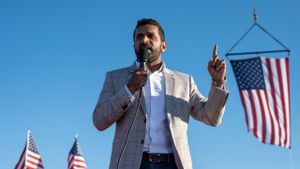The first Raisina Middle East Conference was held on January 28-29, 2025, in Abu Dhabi, UAE, featuring External Affairs Minister (EAM) Dr. S. Jaishankar as the Chief Guest. This event marked a significant step toward strengthening the diplomatic ties between India and the Middle East, with organized efforts led by the Observer Research Foundation (ORF) along with the UAE Ministry of Foreign Affairs and the Indian Ministry of External Affairs.
The central theme of the conference revolved around enhancing trade, investment, and strategic partnerships, aiming to promote regional integration with the global economy. Dr. Jaishankar highlighted the importance of this conference for discussing not only regional geopolitics but also the pressing geoeconomic issues faced today.
Trade relations between India and the Gulf region have seen remarkable growth, currently valuing between $160-$180 billion annually. With more than 9 million Indians living and working across various Gulf countries, the human connections and economic ties have never been stronger. The conference underscored India’s strategic interests beyond simple trade, emphasizing infrastructure, defense, technology, fertilizers, and advancements within green energy development.
UAE has emerged as India’s third-largest trading partner as of 2023-24, following China and the United States. The adoption of the Comprehensive Economic Partnership Agreement (CEPA) signed in May 2022 is also expected to facilitate enhanced trade and investment opportunities between the two nations.
During this influential gathering, Dr. Jaishankar met with several key figures, including UAE President Sheikh Mohamed Bin Zayed, Deputy Prime Minister and Foreign Minister Sheikh Abdullah Bin Zayed, and Abu Dhabi Crown Prince Sheikh Khaled Bin Mohamed Bin Zayed. These meetings aim to solidify the special strategic partnerships, building trust and credibility as the foundation of India-UAE ties.
Reflecting on the historical connections, Dr. Jaishankar noted, "The collaboration between the Observer Research Foundation and UAE partners for making the Abu Dhabi edition possible," indicating the importance of these initiatives for future relations.
Recent developments within the geopolitical environment necessitate resilient partnerships. Dr. Jaishankar identified eight key trends transforming global relations, including competition between the United States and China, manufacturing concentration concerns, and the rise of digital economies. Such shifts compel nations to reassess and reforge partnerships, especially with regional importance highlighted through connectivity initiatives.
"Connectivity was central to regional cooperation," Dr. Jaishankar asserted during his keynote address, where he advocated for collaborative frameworks to facilitate maritime security and humanitarian cooperation—vital elements for the stability of the region.
The discussions also extended to promising future ventures. With India recognizing the Middle East as its extended neighborhood, future efforts will focus on plurilateral cooperation to address global challenges, especially through infrastructure projects and strategic partnerships across sectors such as energy, security, and technology.
This inaugural conference has set the stage for future engagements between India and Middle Eastern nations, establishing new dialogues geared toward unifying efforts and achieving collective growth within the region.
Abu Dhabi's choice as the venue for this conference also holds significant meaning. The UAE serves as not just India's key partner but also as its most influential country within the Middle East, facilitating various economic, security, and socio-cultural collaborations.
Looking forward, India’s growing influence and collaborative efforts signal the importance of the Middle East within its foreign policy framework, as both regions aim to navigate the complex geopolitical terrain together.



